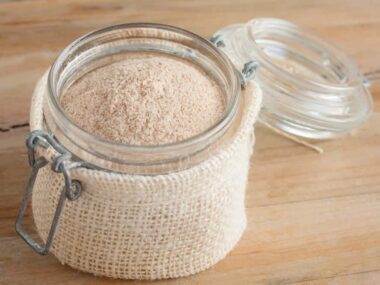Whether raw or roasted, almonds can be ground into a smooth paste to create almond butter, which is a type of nut butter. It’s loaded with nutrients, including good fats, protein, fiber, and vitamins and minerals. This flavorless butter comes in both crunchy and smooth forms, and it’s an excellent addition to any diet.
Almond butter has several uses, including as a spread, in smoothies, and in sweet and savory baked goods. These substitutes for almond butter can satisfy your taste buds and your health concerns, whether you have an allergy to almond butter or if you are just seeking nut butter or another ingredient with a similar taste and consistency.
The Best Substitutes for Almond Butter
1. Cashew Butter
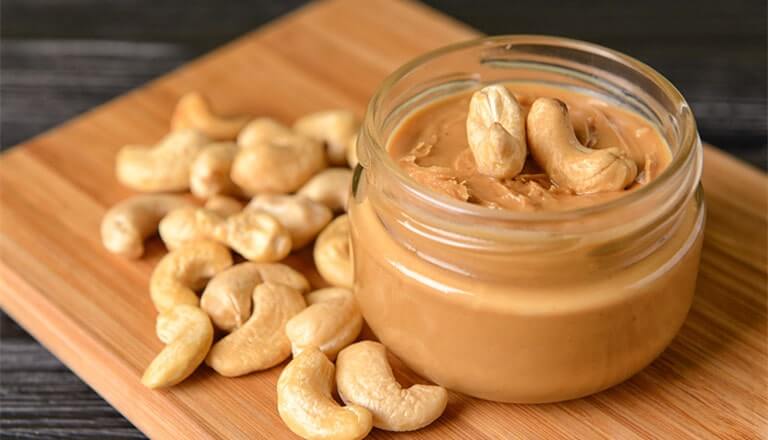
Cashew butter is a nut butter made from roasted cashews that has a delicate, naturally sweet taste and a smooth, creamy texture. It includes less protein than almond butter but is high in monounsaturated fats and antioxidants, making it an excellent complement to your diet.
Cashew butter can be spread over toast in the morning, mixed with jelly in sandwiches, or used as a dip for fruits and desserts. The main disadvantage is that cashew butter can be pricey. However, if your money is not a constraint, you should definitely give this replacement a go to elevate your meals to the next level.
1 teaspoon almond butter = 1 teaspoon cashew butter
2. Greek Yogurt
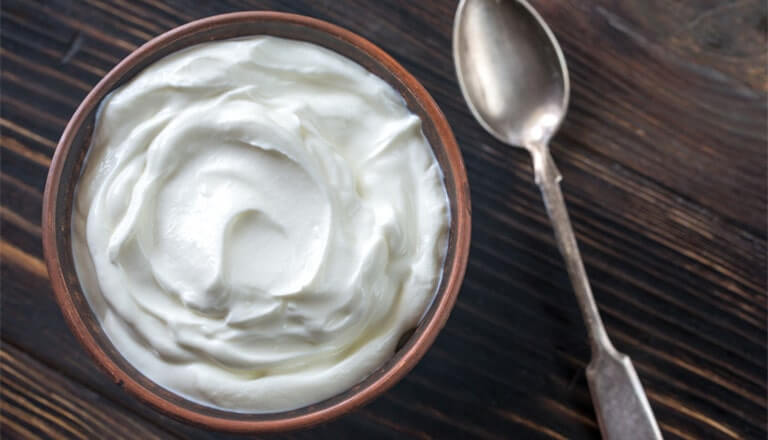
Greek yogurt may appear to be an unusual option, but its thick and velvety texture and sweet and slightly acidic flavor are remarkably comparable to almond butter. It’s also high in vitamins and minerals, making it ideal for low-calorie and low-fat diets.
Greek yogurt can give a rich, creamy taste and a protein boost to any recipe. It is not spreadable, therefore it is best used in baked items to lend a tangy flavor to your food. It also comes in a variety of flavors, so you can select between a basic and flavored version depending on whether you want to spice up your meals.
1 teaspoon almond butter = 1 1/2 teaspoon Greek yogurt
3. Mashed Avocado
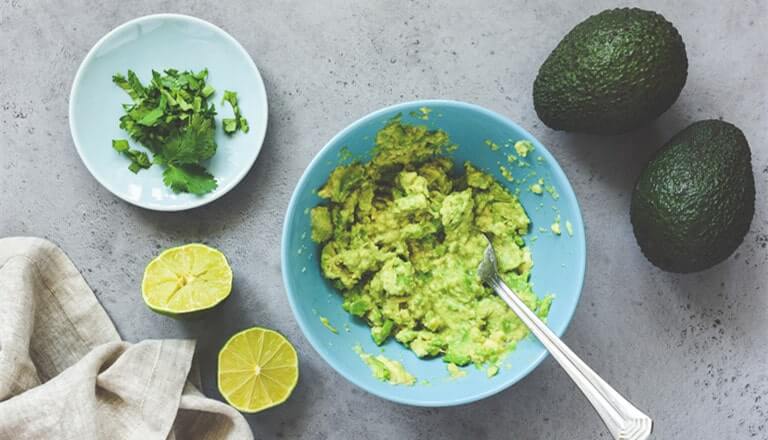
Avocados are popular among health-conscious people for good reason. It has a rich, smooth, butter-like texture and a slightly nutty flavor comparable to almond butter, making it an excellent substitute. More importanly, avocados are high in healthy fats, low in calories, and abundant in nutrients.
You can use this superfood in many ways, like making guacamole or spreading mashed avocado on your toast for breakfast. Avocado lends a fluffy and creamy texture to foods and can be used in baked goods to create delectable delicacies without the need for butter. However, because it does not melt, you may need to add extra liquid to reach the desired consistency.
1 teaspoon almond butter = 1 teaspoon mashed avocado
4. Peanut Butter
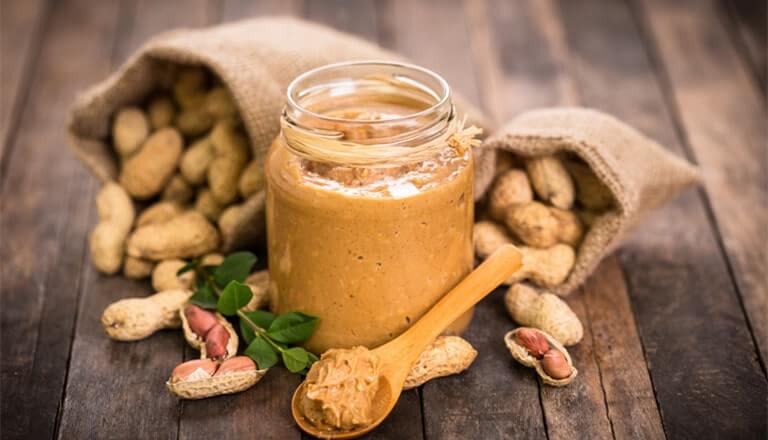
Peanut butter is a nut butter prepared from peanuts. Peanut butter, which is high in carbs and high in protein, is one of the most popular nut butters. It comes in smooth, chunky, stirred, and stirred-free varieties, making it a convenient and inexpensive substitute for almond butter.
This versatile nut butter can be used as a sandwich spread, in oatmeal or smoothie bowls, or to flavor pastries and cakes—the options are unlimited. Because it has a sweeter flavor than almond butter, you may need to use fewer sweeteners than your recipe calls for. If you’re looking to incorporate peanut butter into your healthy diet, it’s important to check the label to see if any additional ingredients were added.
1 teaspoon almond butter = 1 teaspoon peanut butter
5. Pumpkin Seed Butter
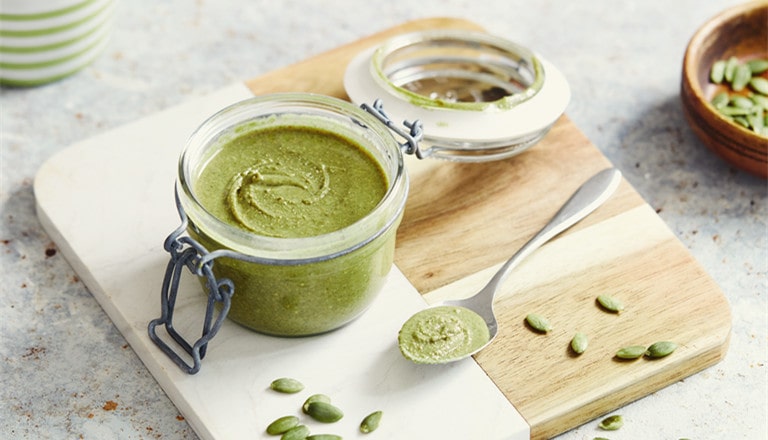
Pumpkin seed butter is a type of nut butter that is high in protein and is created by roasting pumpkin seeds, which are often referred to as pepitas. It is high in fats, fiber, and vitamins and minerals, including iron and magnesium. It has a mellow, nutty flavor with overtones of earthiness and is creamy and green in color.
Pumpkin seed butter is versatile and can be used in a variety of baked goods, cookies, sandwiches, and even smoothies. It’s an excellent alternative to almond and peanut butter if you’re allergic to nuts. However, pumpkin seed butter is blander than almond butter, so you’ll have to taste-test as you go to achieve the desired taste.
1 teaspoon almond butter = 1 teaspoon pumpkin seed butter
6. Sunflower Seed Butter
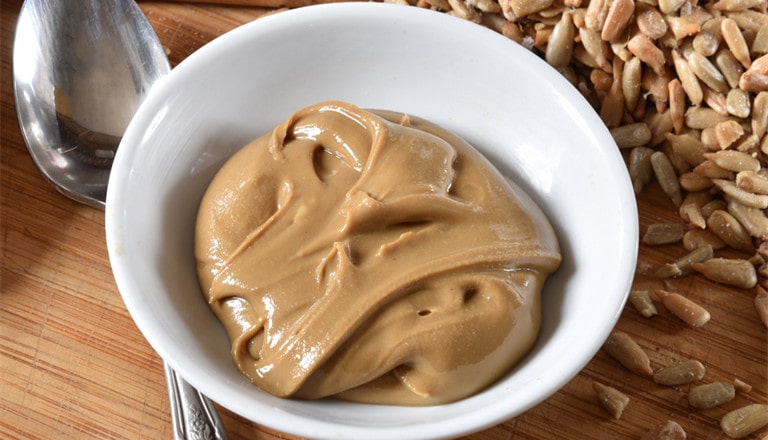
Sunflower seed butter is created by roasting sunflower seeds and then grinding them into a smooth mixture. It’s rich in healthy fats, minerals, protein, and vitamins, and it has a creamy, nutty flavor like almond butter.
Sunflower butter’s deep, rich flavor complements a variety of meals. Although it is less creamy than almond butter, you can spread it on toast, make a dip with it, or use it in any recipe that calls for almond butter; it will still taste great. Keep in mind, however, that in baked items, sunflower butter suffers a chemical reaction with baking soda. As a result, reduce the amount of baking soda in the recipe by one-third.
1 teaspoon almond butter = 1 teaspoon sunflower butter
7. Walnut Butter
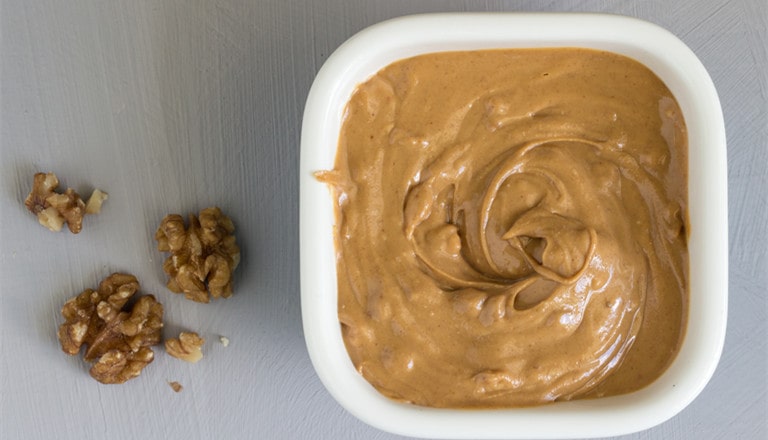
Walnut butter is created from ground walnuts. Similar in texture and flavor to almond butter, walnut butter also features a nutty undertone but ends on a bitter note. Despite the taste difference, it still works well as an almond butter substitute. It also has a lot of health advantages, so it’s a good choice.
Vegans have several delicious options when using walnut butter as an ingredient. However, depending on how you intend to use it, you may need to adjust the amount of sugar in your recipe. It also has a bitter aftertaste, so if you’re having it with toast in the morning, try adding honey or another sweetener.
1 teaspoon almond butter = 1 teaspoon walnut butter
8. Mashed Banana
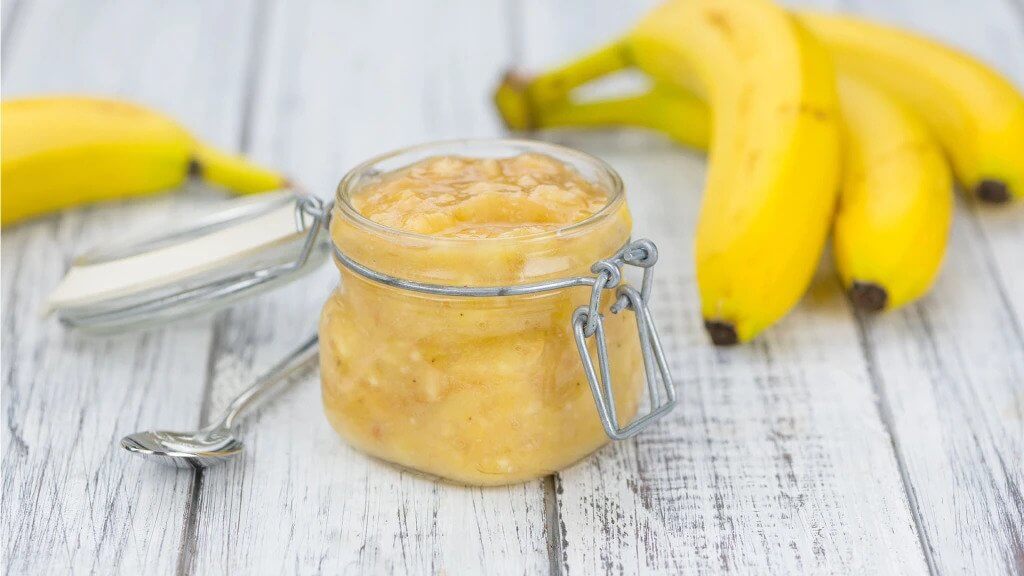
If avocado isn’t your thing, bananas are a good substitute. When it comes to baking, bananas are just as effective as almond butter. If you follow a vegan or gluten-free diet, you can use this as a substitute for butter. Furthermore, bananas are available all year round, anywhere in the world. So you shouldn’t have any trouble finding them.
Whichever kind of banana you choose, make sure it’s ripe enough. It helps to have a sweet and soft banana on hand to mash and combine with the other ingredients.
1 teaspoon almond butter = 1 teaspoon mashed banana
9. Unsalted Butter
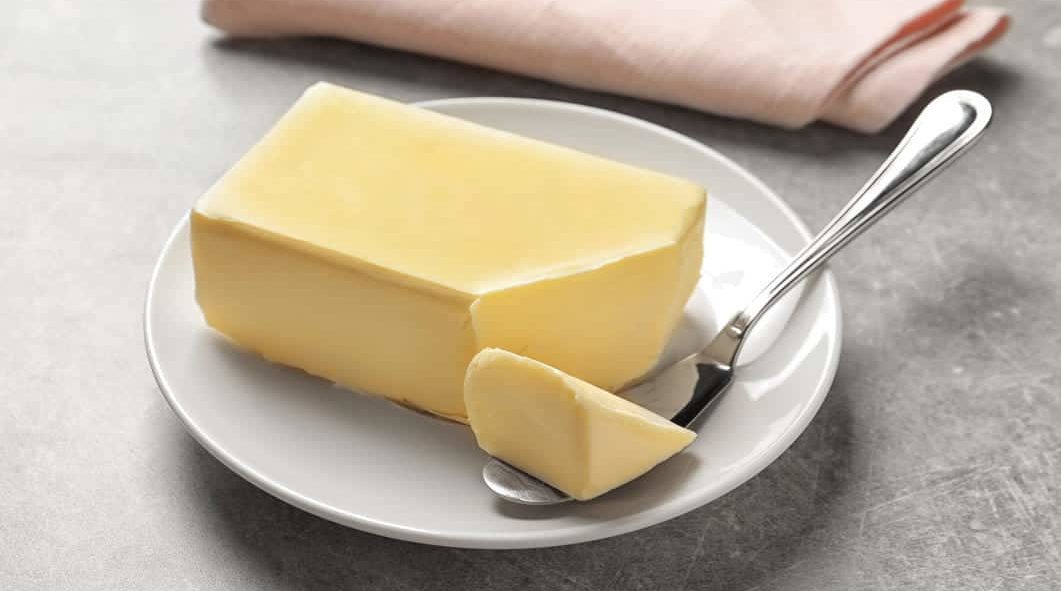
There is no need to run to the grocery store if your options are restricted. If you have unsalted butter on hand, this will do—butter has long been a significant ingredient in baked goods, so butter is always an excellent alternative. To be on the healthy side, go for vegan-friendly and low-fat unsalted butter.
This substitute requires the same 1:1 ratio and ensures that all of your baked goods are soft, moist, and fluffy. Butter is fantastic for this!
1 teaspoon almond butter = 1 teaspoon unsalted Butter
Tip:
Take into account that using non-nut-based replacements will not provide the same aroma and flavor. If you’re looking to add a nutty flavor to your dish, almond butter is easy to prepare at home. There are a lot of recipes on the Internet that can help you make the creamiest, yummiest food ever.
Frequently Asked Questions
Are Almond Butter And Almond Spread The Same?
In a technical sense, no. Although both are made from almonds, almond spread contains sugar, and almond butter is made entirely of almonds.
Is Almond Butter More Nutritious Than Peanut Butter?
Just a little. Almond butter has somewhat more fiber, minerals, and vitamins. Although they differ in certain ways, both could be healthy additions to your regular diet.
Is Almond Butter Expensive?
Yes, depending on the brand, it is more costly than other nut butter varieties. Almond butter is pricey and time-consuming to make, hence its high price.
Do You Need To Refrigerate Almond Butter?
Read the package to find out how to keep it once it’s been opened. Some nut butters, such as almond butter, do not need to be refrigerated. If the variation contains less added sugar or other preservatives, it must be refrigerated after opening. Keep in mind that the purest form of food will degrade faster at room temperature.
It’s no surprise why we’re addicted to almond butter. It’s tasty, healthy, and can be used in plenty of dishes. However, it is not a bad idea to make some substitutions when the recipe calls for something else.


